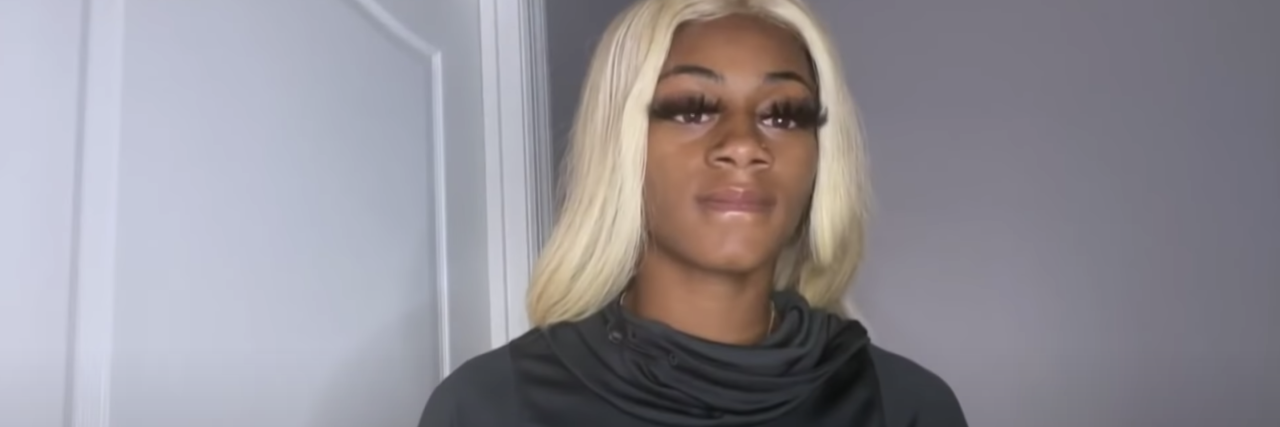Sha'Carri Richardson Needs Understanding, Not Retribution
Editor's Note
If you or a loved one is affected by addiction, the following post could be triggering. You can contact SAMHSA’s hotline at 1-800-662-4357.
A few weeks ago, Sha’Carri Richardson burst onto the international track and field scene with vibrant hair, long colorful nails and a radiating personality, she quickly became a household name. For some, Sha’Carri was labeled as brash and “too much,” but for Black women like me, it was refreshing to see a young Black woman so full of purpose, talent and grace and one who was unafraid to show up as her full self for herself. After the race, Sha’Carri rushed into the stands and fell into the arms of her grandmother.
She attributes her success to her grandmother who raised her from infancy and it was important for her to share in that moment of resilience with her biggest supporter. Sha’Carri quickly drew comparisons to Flo’ Jo, the world record holder for the 100 meter race both in style and speed. Sha’Carri dominated the 100-meter heat, becoming the fastest woman in the world, days after learning from a reporter that her biological mother passed away.
You read that correctly, she learned during an interview just a week prior to her historic race that her mother passed away.
This morning, we learned that Sha’Carri tested positive for marijuana use following that historic race. Marijuana is not a performance enhancing drug and despite being legal in many states and countries throughout the world, it is prohibited by Olympic officials. Sha’Carri knew this prior to using and she has accepted responsibility for her decision to use marijuana to mask her grief.
In our early 20s our brains aren’t fully developed and in the midst of grief and trauma, we aren’t always able to make responsible decisions in the moment. Like Micheal Phelps, Sha’Carri stated that she turned to marijuana due to her struggles with her mental health. In spite of her struggles, Sha’Carri’s journey has been remarkable. She is extraordinary and as a community we must show up for her, and countless others like her, so that she doesn’t forget that.
In an interview on the Today Show this morning, she took responsibility for her actions offering apologies to everyone who has helped her ascend to the international stage. At 21-years-old, she has been suspended from the Olympic team, as required by their governing body. She said that she’d smoked marijuana after learning from the reporter about her mother’s death in Oregon where the drug is legal. She was unprepared for the information about her mother and I believe the way that it was delivered to her was irresponsible.
She spoke candidly with Savannah Guthrie about her tumultuous relationship with her mother and the pain that she was in when she learned of her death. Trauma alters our ability to think clearly and without a solid support system, healthy experiences and resources, Sha’Carri was left in an extremely vulnerable state.
She, in her own words, is human.
I am human
— Sha’Carri Richardson (@itskerrii) July 1, 2021
This brings up many issues for me. Just yesterday, Virginia (my home state) became the first state in the South to decriminalize marijuana use. In Oregon, where the trials are being held, marijuana use is also legal. Nearly twenty states and D.C. have legalized marijuana. But without federal legislation to decriminalize marijuana, Black and Brown people and our communities will continue to be harmed by laws and policies that disproportionately impact communities of color.
In a previous article, I wrote “In surveys of adolescents receiving treatment for substance abuse, more than 70% of patients had a history of trauma exposure. What would have happened if one caring adult had taken notice that these misbehaviors were actually cries for help? As a Black community, we must learn how to embrace our community members struggling through addiction, physical and sexual abuse. We must open the door to allow our children to develop healthy coping skills through adverse trauma. The more trauma you pour into someone, the more likely they are to be pushed into the margins of society and to retreat into the solace of at-risk behaviors.”
As someone who has watched countless friends and family members struggle with addiction, we must understand that what Sha’Carri needs in this moment is connection and understanding and not retribution and chastisement from her community.
I suggest that we start by asking ourselves and our collective community the following questions: What are we pouring back into our communities and into our youth? How are we expected to show up as our best selves when they lack the resources to do so?
Let’s be clear, Sha’Carri did not break any laws in the state of Oregon. She did however violate a policy instituted by US Track and Field and Olympic officials and for that she has been sanctioned.
I hope that she finds healing. I also hope this opens up a larger conversation about self-healing practices and the lack of mental health resources available to the BIPOC community.
Sha’Carri doesn’t owe any of us an apology. She owes it to herself an opportunity to heal from this, her childhood and the recent loss of her mother.
If you find that you are struggling to maintain emotional balance or to unpack your emotional labor, I offer the following:
1. State your intention
Start the week by setting goals and intentions. Start off small to create quick wins.
2. Make time for yourself
Carve out five to 10 minutes a day to focus on your own needs. Take a quick walk around the block, do breath work or make a favorite meal.
3. Self-care
Create an emergency self-care plan that you can draw from in a crisis situation.
4. Find opportunities to care for your spirit
For me, this requires bi-weekly therapy and meditation.
Lead image via The Today Show’s YouTube channel

